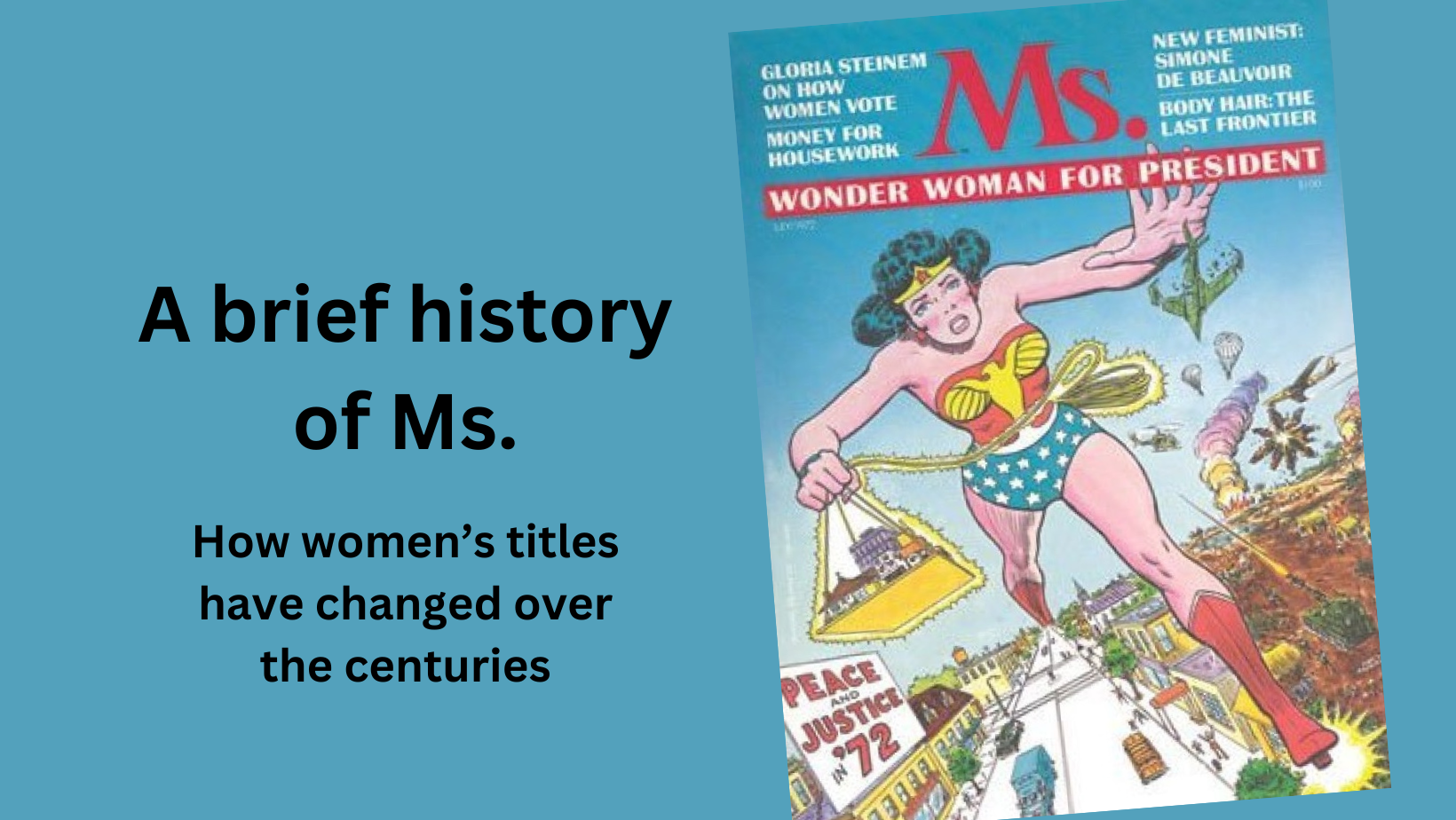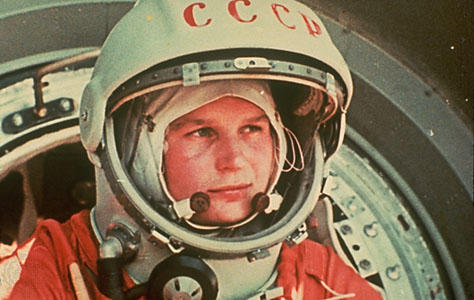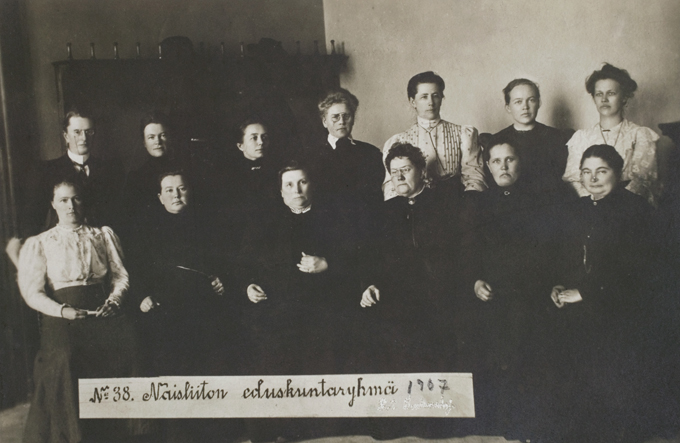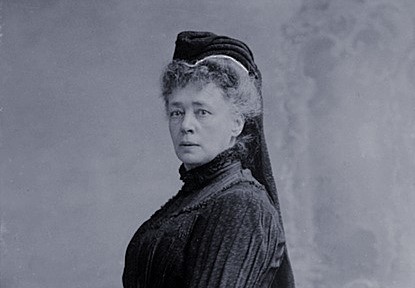It’s over 50 years since the first standalone newsstand edition of Gloria Steinem’s Ms. Magazine was published (1 July 1972). And yet women still have conversations about boring life admin in which they must answer the question “Miss or Mrs?” with “It’s Ms, actually.” So here’s a brief history of the title, for when someone assumes you’re using it to indicate you’re divorced (yes, that really still happens).
Continue reading “A brief history of Ms.”Lady Jane Grey and plotting a Tudor succession
On 21 June 1553, King Edward VI of England and Ireland convinced his noblemen to sign a document agreeing that his cousin Lady Jane Grey would inherit the crown when he died. She lost her head instead.
This month, we look at Lady Jane Grey’s place in history. How and why did she end up as a missing queen?
Continue reading “Lady Jane Grey and plotting a Tudor succession”Elena Piscopia receives her doctorate: 25 June 1678
On 25 June 1678, Elena Lucrezia Cornaro Piscopia is cross-examined in the Cathedral of the Blessed Virgin in Padua. Crowds of nobles, scholars and city officials are watching. Her answers on two Aristotelian theses impress her examiners and she is awarded the Doctorate of Philosophy degree. She is one of the first women to receive a doctorate in the world.
Continue reading “Elena Piscopia receives her doctorate: 25 June 1678”Khan, Rowden and Lefort set out for France: 17 June 1943
On 17 June 1943 Noor-un-nisa Inayat Khan, Diana Rowden and Cecily Lefort left for France in a small plane. All three women were trained Special Operations Executive agents setting off on their separate missions for the British against the German occupiers. None of them returned.
Continue reading “Khan, Rowden and Lefort set out for France: 17 June 1943”Valentina Tereshkova reaches orbit: 16 June 1963
On 16 June 1963, Valentina Tereshkova became the first woman in space, orbiting the Earth 48 times in Vostok 6. With her flight, she clocked up more hours in space than all the preceding American manned missions combined. She remained the only woman to have flown in space for 19 years and she remains the only woman to have completed a solo space mission.
Continue reading “Valentina Tereshkova reaches orbit: 16 June 1963”Ada Lovelace meets Charles Babbage: 5 June 1833
On 5 June 1833, Ada Bryon attended a party at mathematician Charles Babbage’s house. She’d been presented at court a few days earlier so it was simply part of the London season. Except Babbage invited Ada to see his prototype Difference Engine. It was the start of an intellectual friendship that resulted in Ada becoming the first theoretical computer programmer.
We know machines run algorithms now, delivering customised playlists or sorting job applications. Ada was the first person to perceive the numbers to be used in calculations could also act as symbols for other systems.
Continue reading “Ada Lovelace meets Charles Babbage: 5 June 1833”Finland’s 19 female MPs take their seats: 23 May 1907
On 23 May 1907 nineteen women took their seats as the Finnish Parliament met for the first time. The women were the first female Parliamentarians in the world.
By 2018 Finland ranked fourth in the world for gender parity. At the 2019 elections, 47% of the MPs elected were women.
Continue reading “Finland’s 19 female MPs take their seats: 23 May 1907”Alison Hargreaves summits Everest: 13 May 1995
On 13 May 1995, professional British mountaineer Alison Hargreaves reached the summit of mount Everest in the Himalayas. She was the first woman – and only the second person – to summit without either support from a Sherpa team or supplementary oxygen.
Hargreaves had set her ambition out clearly and shown she was going for it: she would become the first woman to climb Everest, K2 and Kanchenjunga – the three highest mountains in the world – without oxygen.
Continue reading “Alison Hargreaves summits Everest: 13 May 1995”Jeanne d’Arc in battle in Orleans: 7 May 1429
On 7 May 1429, Jeanne d’Arc led several charges on the besieged city of Orleans in France. She was struck by an arrow, dressed the wound and returned to the fray. The next day, the English army besieging Orleans retreated and the city was freed.
Having led the lifting the of the siege, Jeanne then led the French army as they routed the English armies and freed more cities. When Charles VII of France was crowned in Reims that summer, Jeanne d’Arc knelt at his feet.
Continue reading “Jeanne d’Arc in battle in Orleans: 7 May 1429”Bertha von Suttner wins the Nobel Peace Prize: 18 April 1906
On 18 April 1906, Baroness Bertha von Suttner becomes the first woman to collect the Nobel Peace Prize. She had been instrumental in Albert Nobel creating a prize for peace at all.
Von Suttner was an international leader in the peace movement, and continued to campaign until her death, a few weeks before Franz Ferdinand’s assassination triggered the first World War she had sought to prevent.
Continue reading “Bertha von Suttner wins the Nobel Peace Prize: 18 April 1906”









